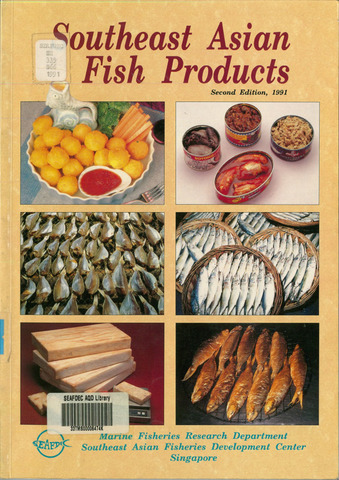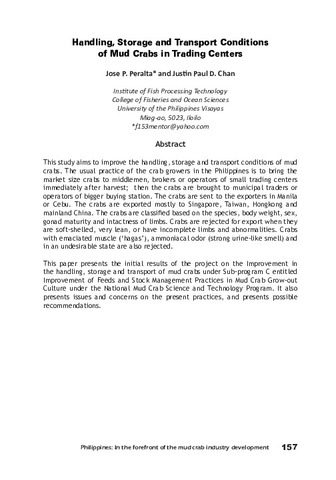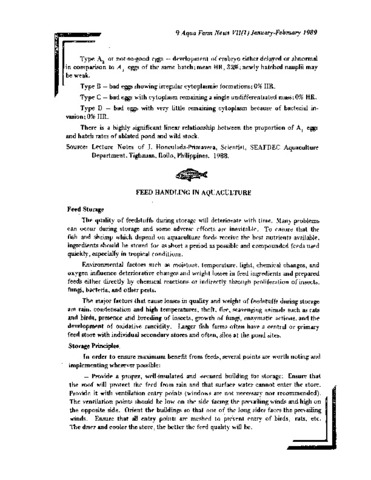| dc.contributor.author | Peralta, Jose P. | |
| dc.contributor.author | Cheung, Dominique S. | |
| dc.contributor.editor | Quinitio, Emilia T. | |
| dc.contributor.editor | Parado-Estepa, Fe Dolores | |
| dc.contributor.editor | Coloso, Relicardo M. | |
| dc.date.accessioned | 2017-08-25T09:08:15Z | |
| dc.date.accessioned | 2017-08-25T16:34:39Z | |
| dc.date.available | 2017-08-25T09:08:15Z | |
| dc.date.available | 2017-08-25T16:34:39Z | |
| dc.date.issued | 2017 | |
| dc.identifier.citation | Peralta, J. P., & Cheung, D. S. (2017). Defects in the handling, storage and transport of mud crab. In E. T. Quinitio, F. D. Parado-Estepa, & R. M. Coloso (Eds.), Philippines : In the forefront of the mud crab industry development : proceedings of the 1st National Mud Crab Congress, 16-18 November 2015, Iloilo City, Philippines (p. 156). Tigbauan, Iloilo, Philippines: Aquaculture Department, Southeast Asian Fisheries Development Center. | en |
| dc.identifier.isbn | 9789719931072 | |
| dc.identifier.uri | http://hdl.handle.net/10862/3191 | |
| dc.description | Abstract only. | en |
| dc.description.abstract | Consumers prefer to buy live mud crabs (Scylla). Moribund and dead crabs have very low market value. Immediately after harvest, the crabs are tied to render their claws immobile. The time between harvest and arrival of crabs at the final destination is 3-5 days. During the holding and transport period, the crabs are no longer fed and are sometimes subjected to stressful conditions (e.g. high temperature) which may result to weight loss, muscle emaciation and other undesirable conditions of the crabs, and mortality. Likewise, ammoniacal odor (strong urine-like smell) that affects flavor is sometimes observed. Crabs with emaciated muscle and undesirable odor are considered rejects.
This paper presents the initial results of the project on the Improvement in the Handling, Storage and Transport of Mud Crabs under Sub-program C entitled Improvement of Feeds and Stock Management Practices in Mud Crab Grow-out Culture under the National Mud Crab Science and Technology Program. | en |
| dc.language.iso | en | en |
| dc.publisher | Aquaculture Department, Southeast Asian Fisheries Development Center | en |
| dc.subject | Scylla | en |
| dc.subject | Philippines | en |
| dc.title | Defects in the handling, storage and transport of mud crab | en |
| dc.type | Conference paper | en |
| dc.citation.spage | 156 | |
| dc.subject.asfa | stress | en |
| dc.subject.asfa | consumers | en |
| dc.subject.asfa | crab culture | en |
| dc.subject.asfa | fish storage | en |
| dc.subject.asfa | fishery products | en |
| dc.subject.asfa | handling | en |
| dc.subject.asfa | live storage | en |
| dc.subject.asfa | marine crustaceans | en |
| dc.subject.asfa | odour | en |
| dc.subject.asfa | postharvest losses | en |
| dc.subject.asfa | purchasing | en |
| dc.subject.asfa | transportation | en |
| dc.citation.conferenceTitle | Philippines : In the forefront of the mud crab industry development : proceedings of the 1st National Mud Crab Congress, 16-18 November 2015, Iloilo City, Philippines | en |



